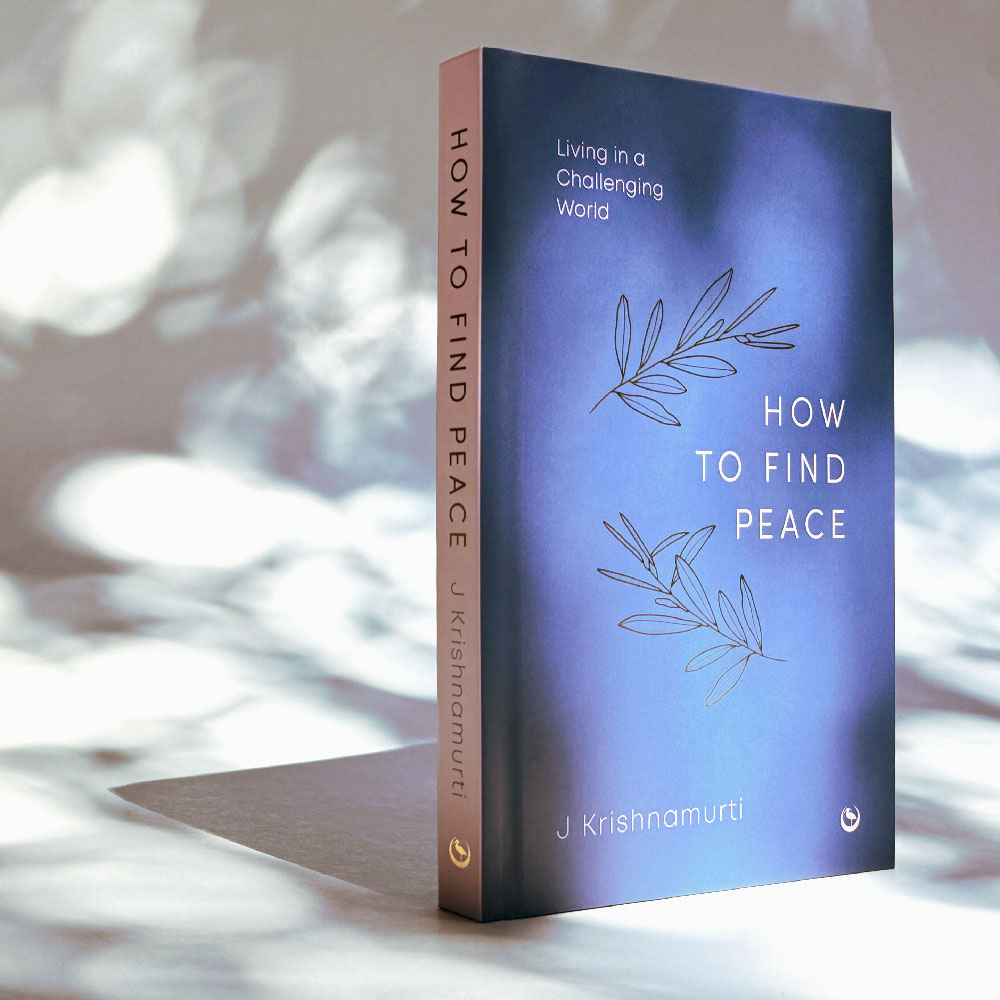As you are responsible for war, you must be responsible for peace.
Living in a Challenging World
In this new collection of talks and extracts, Krishnamurti focuses on the outer world and the state of humanity. Returning to the subject of peace throughout the book, he explores what we can do in a world of conflict, what our responsibility is to society and each other, the nature of politics and war, our relationship to nature and the environment, a new kind of education, whether change is possible, and the possibility of living intelligently, which brings about order and so peace. The sustained inquiry illustrates how the outer chaos in the world is a reflection of our inner lives, how we have created society and, therefore, are all responsible for bringing about peace.
Extracts
None can lead you to peace but yourself; there is no leader, no system that can bring war, exploitation and oppression to an end. Only by your thoughtfulness, by your compassion, by your awakened understanding can goodwill and peace be established.
At whatever level you live, there is conflict, not only individual conflict but world conflict. The world is you; it is not separate from you. What you are, the world is. There must be a fundamental revolution in your relationship with people and ideas; there must be a fundamental change. That change must begin not outside you but in your relationships. Therefore, it is essential for a person of peace, for a person of thought, to understand oneself, for without self-knowledge one’s efforts only create further confusion and misery. Be aware of the total process of yourself. You need no guru, no book, to understand your relationship with all things from moment to moment.
Extracts from HOW TO FIND PEACE
Can We Live Peacefully With Each Other?
At its invitation, Krishnamurti spoke at the United Nations in New York on its 40th Anniversary. He was 90 years old. After the talk, Krishnamurti was given a Peace Medal. This video features an extract from the book’s introduction.
In our desire to change the world, we meet with opposition— groups are formed for and against, which only further engender antagonism, suspicion, and competition in conversion. Agreement is almost impossible except when there is common hate or fear. All actions born of fear and hate must further increase fear and hate. Lasting order and peace can be brought about only when the individual voluntarily and intelligently consents to think without hate, greed and ambition. Only in this way can there be creative peace within you and therefore in your relationship with another, which is called society.
About the Author
Krishnamurti is regarded globally as one of the greatest thinkers and teachers of all time. He did not expound any philosophy or religion, but talked of the things that concern all of us in our everyday lives, of the problems of living in modern society with its violence and corruption, of the individual’s search for security and happiness, and the need for mankind to free itself from inner burdens of fear, anger, hurt, and sorrow. He explained with great precision the subtle workings of the mind, and pointed to the need for bringing to our daily life a deeply meditative and spiritual quality.
Krishnamurti belonged to no religious organisation, sect or country, nor did he subscribe to any school of political or ideological thought. On the contrary, he maintained that these are the very factors that divide human beings and bring about conflict and war. He reminded us again and again that we are all human beings first, that we are like the rest of humanity and are not different from one another.
Krishnamurti left a large body of teachings in the form of public talks, writings, discussions with teachers and students, with scientists and religious figures, conversations with individuals, television and radio interviews, and letters. These have been published in books in more than 60 languages. Krishnamurti’s work continues to reach new generations through the Foundation’s innovative social media and online presence.

